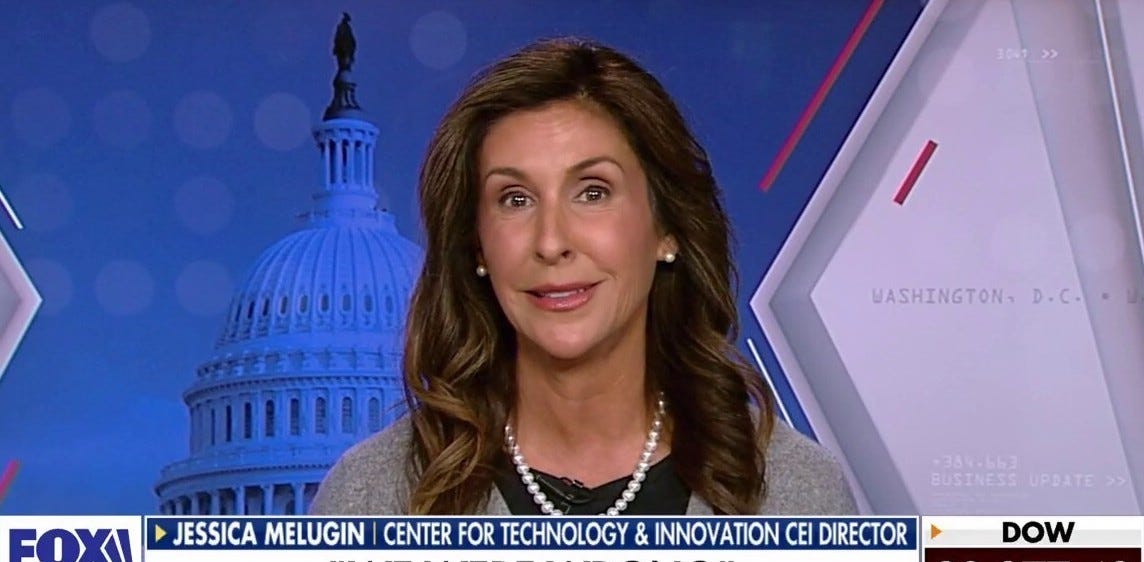Wrong way
Populists and progressives want a leftward shift. FreeCons say no.
What is the future of conservative politics and policy in America?
The nationalist-populist Right wants to abandon what they call “Zombie Reaganism” in favor of protectionism, industrial policy, weaker laws against labor-union abuses, and a stronger central government willing to overrule the independent judgement of states, localities, and private associations.
To Freedom Conservatives, these aren’t new and innovative ideas. They are old and discredited ones. They also represent an attempt to shift American conservatism leftward.
You know who agrees with us about this? Progressives!
They also want the American right to shift leftward, to embrace a more activist government and eschew such policies as tax cuts, deregulation, decentralization, and entitlement reform.
That’s why the New York Times and other left-leaning media lavish so much attention on nationalist-populist voices and institutions. That’s why left-wing donors give money to these institutions.
While harboring deep disagreements with the religious and cultural views of the populist Right, progressives would still rather see the policy battles over taxes, federal spending, health care, and other domestic-policy matters unfold only on their half of the field.
FreeCons won’t play their game according to their rules. We won’t be confined to one side of the field. And we are committed to applying “the timeless principles of liberty to the challenges of the 21st century.”
Here are some recent examples of our efforts.
Flubbing the future
Jessica Melugin is director of the Center for Technology & Innovation at the Competitive Enterprise Institute. She’s also a FreeCon signatory.
Melugin’s research focuses on technology issues including antitrust, online privacy, artificial intelligence, telecommunications, social media content and net neutrality regulation.
Her writings have appeared in The New York Times, Wall Street Journal, Financial Times, USA Today, Bloomberg Law, National Review and elsewhere. She has been cited in The Washington Post, Politico, U.S. News & World Report and Variety. She is also a frequent cable news television and radio guest.
In a recent Washington Examiner piece, Melugin discussed the U.S. Supreme Court’s decision to send the NetChoice v. Paxton and Moody v. NetChoice cases back to lower federal courts.
Both involved attempted by Republican-led states — Texas and Florida, respectively — to regulate editorial decisions by online platforms.
While issuing no sweeping ruling on the constitutionality of such regulations, the high court’s majority signaled major concerns about them. The “editorial judgments” of social-media companies are “protected expressive activity,” the majority wrote.
“It remains to be seen,” Melugin concluded, “if state legislators will pass new laws in attempts to accomplish their ends but not run afoul of the First Amendment protections the Supreme Court warned of.”
In another recent article, this one for National Review, she wrote that the Biden administration’s plan to investigate artificial-intelligence companies will hamper American industry in global competition.
“Antitrust regulators now believe they can scrutinize U.S. firms even in markets that are competitive and are in no danger of ceasing to be,” Melugin wrote, but they have “an especially poor record of predicting the future when it comes to the technology sector.”
Results, not intentions
Thomas Savidge is a research fellow at the American Institute for Economic Research and a FreeCon signatory.
Prior to joining AIER, he was a research director at the American Legislative Exchange Council focusing on tax and fiscal policy. He was a co-author of several publications focused on public pensions, public retiree benefits, bonded obligations, tax and expenditure limits, and state taxes.
Savidge has written for The Wall Street Journal, The Orange County Register, Tax Notes, The Washington Post, US News & World Report, The New York Post, and The Daily Caller.
In an AIER article, he reacted to U.S. Sen. Josh Hawley’s recent speech at the National Conservatism Conference in Washington.
Hawley criticized Republicans and conservatives who champion reductions in corporate taxation. “Their fusionist faith” the senator claimed, can be summed up as “money first, people last.”
Savidge rejected Hawley’s framing of the issue as entirely disconnected from the realities of economic growth and opportunity. When companies seek to earn a profit on their owners’ investment, that produces real and tangible benefits for consumers and workers, too.
Rather than follow Hawley’s populist prescriptions, we should “scale down” American government, Savidge wrote. That means “reducing spending” to head off “high tax rates and unsustainable debt growth that plagues us as well as our children and grandchildren.
“Reining in the Federal Reserve — so that it focuses solely on controlling the money supply instead of credit allocation, social policy, or environmental policy — will help stop the rapid erosion of the dollar’s value. Shrinking the federal code of regulations (which currently regulates everything under the sun) removes barriers for Americans looking for work.
“Look at results, not intentions.”
In the mix
• On June 27, Joe Biden and Donald Trump met for their first — and, now we know, their only — debate. In her Washington Examiner column, FreeCon signatory Tiana Lowe Doescher focused on Biden’s notion of forcing billionaires to “wipe out” federal debt. “Even if you liquidated all the holdings of every billionaire in the country, Soviet-style, and threw them in the Gulag,” she wrote, “that $5.5 trillion would cover roughly two years of our existing annual $2 trillion deficits, not a crumb extra to pay for ‘child care’ or ‘elder care,’ as Biden promised.”
• Some Republicans are also whiffing on tax policy, Mercatus Center senior research fellow Veronique de Rugy observed in National Review. At the NatCon conference, Sen. Josh Hawley criticized the 2017 cut in corporate taxes, which was enacted by a Republican Congress and signed by Trump. Hawley’s strain of populism “means increasing prices and lowering wages for Americans,” de Rugy argued, pointing to research on who actual bears the cost of corporate taxation. “Here is a better way to signal that one is populist and isn’t pro-business: Just call for ending all corporate subsidies, tax credits, and government favoritism. That should do it.”


